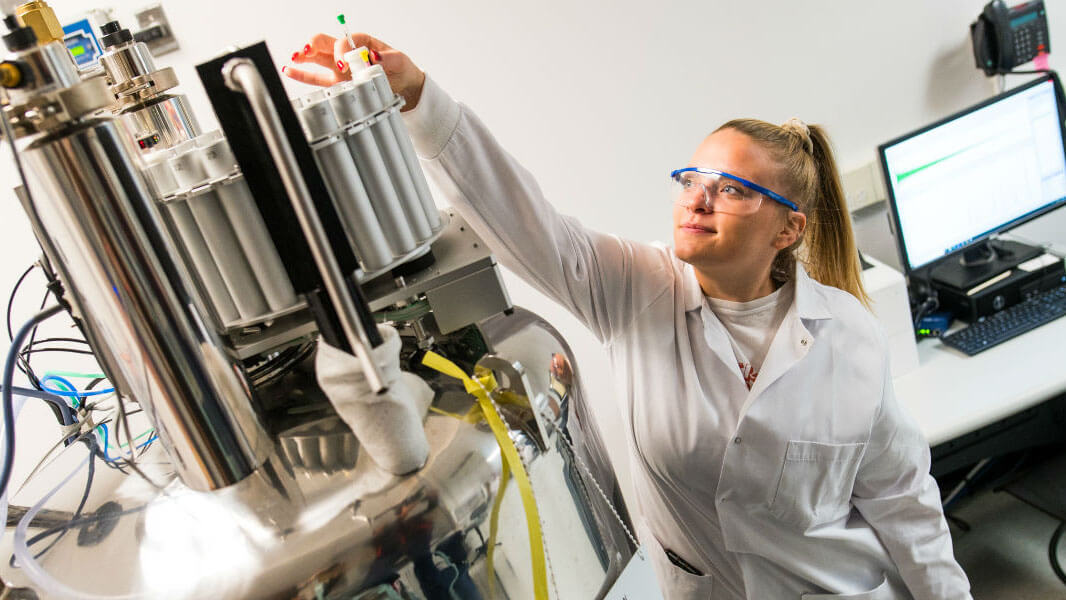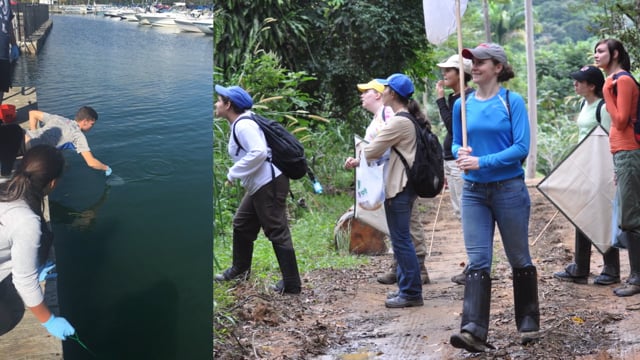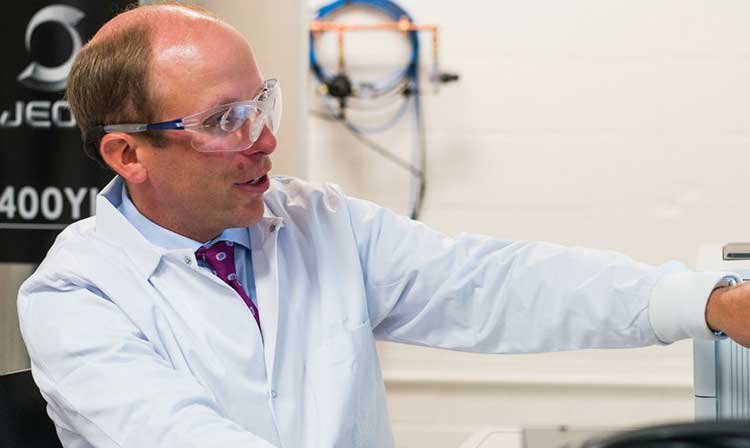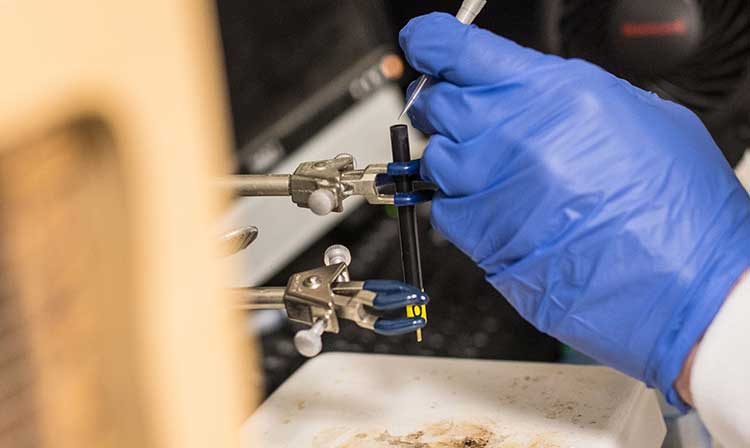Fairfield University Chemistry & Biochemistry Department
Major Equipment and Resources
Spectroscopy:
- 400 MHz JEOL ECZS NMR Spectrometer with a ROYAL HFX probe and pulsed field gradient and variable temperature capabilities.
- Cary 60 and 100 UV-Visible Spectrometers (with multicell holder and variable temperature peltier controller)
- Bruker Alpha FT-IR spectrometers (with ATR accessories)
- Bruker Tensor 27 FT-IR spectrometer
- PTI Xenon Flash Fluorescence fluorometer
- Rudolph Research Autopol 1 Polarimeter
- Perkin Elmer Atomic Absorption Spectrometer
- Biotek H1 Monochromator-based plate reader
Mass Spectrometry:
- Shimadzu Axima Confidence MALDI-TOF with SARAMIS iD Plus (positive and negative ionization with both linear and reflective modes)
- Shimadzu GC/MS (with autosampler, EI/CI ionization modes, and direct MS injection capability)
Synthesis:
- CEM Microwave Synthesizer
- MBraun Inert Atmosphere Glove Box
- MBraun Solvent Purification System (used to purify acetonitrile, dichloromethane, diethyl ether, dimethylformamide, and tetrahydrofuran)
Chromatography:
- Agilent and Gow-Mac Gas Chromatographs
- Shimadzu HPLC with UV-detector. This instrument contains an autosampler and a fraction collector.
- Varian HPLC with UV-detector
- Buchi C800 Automated Flash Chromatography System
Computational Chemistry:
- Gaussian09 Rev E.01 (Gaussian, Inc) installed locally on two 12-processor UNIX systems. Access for students and faculty is via Gaussview browser based WebMO, or by direct login.
Electrochemistry:
- Pine WaveNow and Cypress Systems potentiostats
Library:
The DiMenna-Nyselius Library is adjacent to the Bannow Science Center. The library has online subscriptions to major chemistry journals (ACS and RSC) with holdings substantively beyond ACS guidelines. The University also has access to SciFinder Scholar. Interlibrary loan provides resources not available on campus.
Cell Culture Work:
- New Brunswick E24R Refrigerated Incubating Shaker
- CO2 regulated cell culture incubator
- Syngene Imaging Station (fluorescent and chemiluminescent capabilities)
- Fisher Scientific 45 cu ft. chromatography refrigerator
Other Resources:
Faculty members collaborate with undergraduates in dedicated 320 ft2 (minimum) research laboratories equipped with four, six or eight-foot fume hoods. Vacuum pumps, rotary evaporators, nitrogen gas, chiller baths, Schlenk lines, and glassware are available in the department for faculty research needs. We have a full-time laboratory manager and a full-time program assistant who place and track orders for research among other duties. A machine shop is located in Bannow Science Center and is available to support research needs.
A quadrupole LC-MS and a high-resolution mass spectrometer are available at Yale University West Campus (25-30 minutes away by car) and in the Chemistry Department at Yale University (45-50 minutes away by car) and have been used by Fairfield faculty. The possibility exists to arrange the use of other instruments at Yale University as well.




